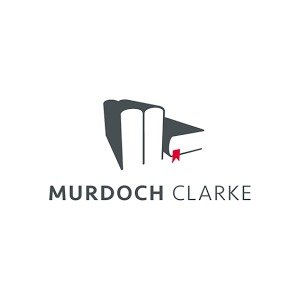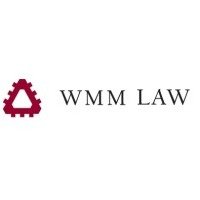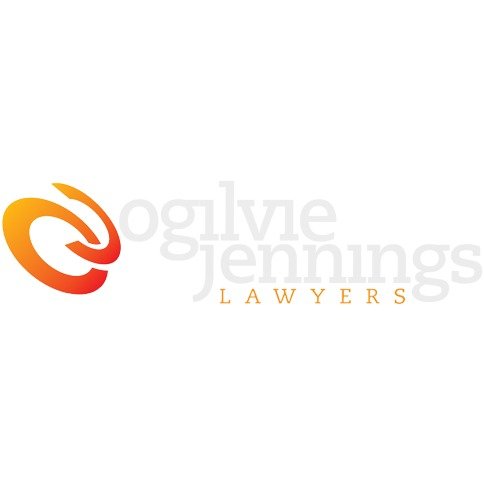Best Licensing Lawyers in Hobart
Share your needs with us, get contacted by law firms.
Free. Takes 2 min.
List of the best lawyers in Hobart, Australia
Australia Licensing Legal Articles
Browse our 1 legal article about Licensing in Australia written by expert lawyers.
- How to Start a Business in Australia: A Simple Guide and How a Lawyer Can Help
- Australia is known for its vibrant economy, supportive government policies, and high quality of life, making it an attractive destination for entrepreneurs looking to start a business. Whether you're launching a small local shop or a large-scale enterprise, Australia offers a range of opportunities for growth and success.However, starting a... Read more →
About Licensing Law in Hobart, Australia
Licensing law in Hobart, Australia, governs the granting, renewal, and management of various licenses required for businesses and individuals to operate legally. This includes licenses for selling alcohol, operating a business, fishing, and other specific activities. The legal framework ensures compliance with safety, environmental, and ethical standards, protecting the community while facilitating economic activity. The Department of Natural Resources and Environment Tasmania, along with local councils, plays a crucial role in regulating and enforcing licensing laws.
Why You May Need a Lawyer
There are several situations where legal advice can be beneficial in the field of licensing. For instance, if you are starting a business and require a license to operate, a lawyer can help navigate the complex application process and ensure compliance with local regulations. Legal support is also valuable if you face issues such as a denied license application, renewal complications, or disciplinary actions involving your current license. In addition, legal advice can aid in interpreting changes to licensing laws and their implications for your business or activity.
Local Laws Overview
Licensing in Hobart is largely governed by both state legislation and local council regulations. Key legislation includes the Liquor Licensing Act 1990 for alcohol sales, the Business Names Registration Act 2011 for business operations, and various fishing regulations under the Living Marine Resources Management Act 1995. A critical component of these regulations is the adherence to ethical and operational standards to ensure public safety and fairness. Licenses are subject to review and must be renewed periodically, with specific criteria needing to be met for successful renewal or initial approval.
Frequently Asked Questions
What types of licenses are most common in Hobart?
Common licenses include those for liquor sales, business operations, and permits for fishing or farming activities. Each type of license has specific criteria and application processes.
How can I apply for a business license in Hobart?
Business licenses can be applied for through Service Tasmania or the relevant local council websites. The application process typically involves providing detailed information about the business and paying applicable fees.
What happens if my license application is denied?
If your application is denied, you have the option to appeal the decision or reapply. Consulting with a lawyer can help you understand the denial reasons and improve your subsequent application or appeal.
How often do I need to renew my license?
The renewal period for licenses varies depending on the type, with some requiring annual renewal while others may be valid for longer periods. Always check the specific conditions of your existing license.
Are there penalties for operating without a license?
Yes, operating without the required license can result in fines, legal action, and closure of the business. Compliance with licensing requirements is essential to avoid these penalties.
Can I transfer my license to someone else?
Transferring a license is subject to approval by the relevant licensing authority, and conditions may apply. It's important to consult with them or a lawyer to understand the process and requirements.
What are the key considerations in a liquor license application?
Key considerations include the location of the establishment, the intended hours of operation, community impact, and the applicant's history with licensing or related offenses.
Is there a way to appeal a licensing decision?
Yes, most licensing bodies provide avenues for appeal. The specific process can depend on the licensing authority and the type of decision being appealed.
How can legal changes affect my current license?
Changes in legislation can affect compliance requirements, fees, or renewal processes. Keeping informed about legal changes and consulting a lawyer can help ensure ongoing compliance.
Who regulates licensing in Tasmania?
Licensing in Tasmania is regulated by various entities including state departments like the Department of Natural Resources and Environment Tasmania and local councils tailored to specific types of licenses.
Additional Resources
For further assistance, consider the following resources:
- The Department of Natural Resources and Environment Tasmania offers detailed guidance and application forms.
- Local councils often provide specific advice and support for business licensing.
- Legal Aid Tasmania can offer free or low-cost legal advice for certain eligibility criteria.
Next Steps
If you require legal assistance in the field of licensing, consider consulting with a legal professional specializing in licensing law to ensure you receive informed and specific advice. Begin by gathering all relevant documentation about your license or intended application. Contact legal professionals or organizations for consultations to discuss your needs and understand any potential actions you need to take. It is prudent to approach this through scheduled appointments or inquiries with agencies like the Law Society of Tasmania, which provides listings of lawyers available to assist you.
Lawzana helps you find the best lawyers and law firms in Hobart through a curated and pre-screened list of qualified legal professionals. Our platform offers rankings and detailed profiles of attorneys and law firms, allowing you to compare based on practice areas, including Licensing, experience, and client feedback.
Each profile includes a description of the firm's areas of practice, client reviews, team members and partners, year of establishment, spoken languages, office locations, contact information, social media presence, and any published articles or resources. Most firms on our platform speak English and are experienced in both local and international legal matters.
Get a quote from top-rated law firms in Hobart, Australia — quickly, securely, and without unnecessary hassle.
Disclaimer:
The information provided on this page is for general informational purposes only and does not constitute legal advice. While we strive to ensure the accuracy and relevance of the content, legal information may change over time, and interpretations of the law can vary. You should always consult with a qualified legal professional for advice specific to your situation.
We disclaim all liability for actions taken or not taken based on the content of this page. If you believe any information is incorrect or outdated, please contact us, and we will review and update it where appropriate.










